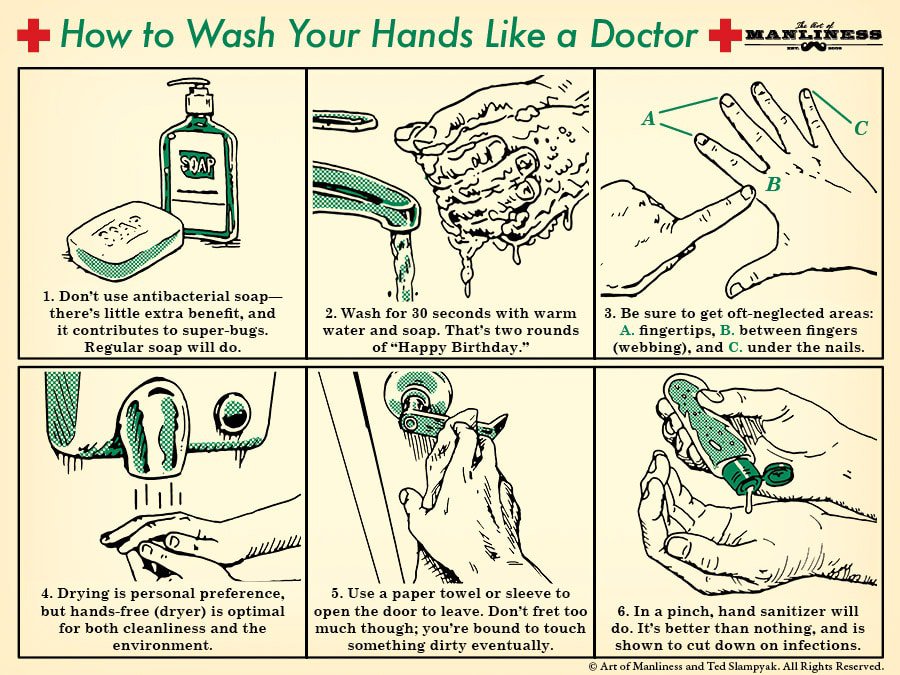Tag: Doctors
Joke Of The Day: Baby Prescription
How To Of The Day: How To Wash Your Hands Like A Doctor
You think you’re warding off disease, but if you don’t spend enough time washing your hands in the correct manner you’re fooling yourself.
Use the simple guide below to wash your hands like a doctor.
January has been the month of the cold that would not die at the McKay household. First one half of the family got sick, then the other, then the first half again. It was a downright pandemic around here. Productivity, morale, and my gains — my poor, poor gains! — have suffered greatly.
It’s gotten me thinking about how to better handle getting sick in the future, and how to prevent getting sick in the first place. When it comes to the latter, proper and regular hand-washing is one of the most important weapons in your cold and flu-fighting arsenal.
In the past I’ve admittedly been a short and sloppy washer. And I’m not alone; studies have shown that only 5% of people wash their hands correctly.
So we talked to Bryan Canterbury, ER doctor at Newton-Wellesley Hospital in Newton, MA, to get his tips on how to wash thoroughly like a right-old medical professional. His doctor-endorsed guide is above.
According to the CDC, you should wash your hands:
- Before, during, and after preparing food
- Before eating food
- Before and after caring for someone who is sick
- Before and after treating a cut or wound
- After using the toilet
- After changing diapers or cleaning up a child who has used the toilet
- After blowing your nose, coughing, or sneezing
- After touching an animal, animal feed, or animal waste
- After handling pet food or pet treats
- After touching garbage
Skip the antibacterial soap; it’s not only no more effective at getting rid of germs than regular soap, it may lead to the development of resistant strains of bacteria (i.e., the “super bug”). The antibacterial label also tends to make people careless about washing their hands the right way, figuring the soap will take care of the germs itself, which isn’t the case.
Hand sanitizer will work in a pinch — use a big glob, make sure it’s at least 60% alcohol, and rub it over every surface of your hands. Sanitizer’s not a good choice when you’ve got actual grime on your hands, and it doesn’t kill all germs, but it’s almost as effective as hand washing. It won’t lead to super bug-dom, either; hand sanitizer breaks down bacteria in a different way than the anti-microbials in antibacterial soap do. Here’s how Dr. Canterbury recommends using sanitizer:
“In the hospital, we use hand-sanitizer in-out of each patient room. But we are told to soap-and-water after the bathroom and before/after meals and when hands are visibly dirty — and I think that’s great minimum criteria throughout the day no matter your work/life setting; more if possible to prevent catching a cold, flu, pneumonia — or worse.”
There you go, how to wash (or sanitize) your hands like a doc. Until next time, keep your noses, and your hands clean.



